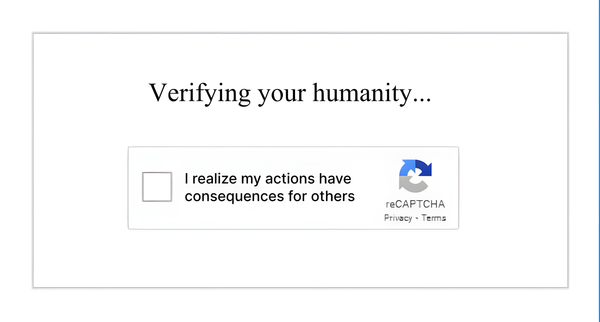The Manager's Guide – #78
Weekly Hand-Picked Collection Edition

Quantifying the impact of developer experience
- 💡 Improving developer experience (DevEx) is crucial for enhancing productivity and innovation.
- 📊 A joint study by Microsoft, GitHub, and DX quantifies the impact of DevEx at individual, team, and organizational levels.
- 🔄 Positive outcomes of improved DevEx include enhanced job performance, creativity, learning, code quality, technical debt reduction, retention, innovation, and profitability.
- 🛠️ Strategies for enhancing DevEx include promoting deep work, engaging tasks, intuitive processes, and tools, as well as optimizing feedback loops.
- 📈 DevEx improvements lead to happier, more productive developers, stronger teams, and more successful organizations.
Why You Should be Afraid of ‘Great Execution’
- 🔍 The author critiques the notion of "great execution" in management and its negative impact on customers.
- 📉 The piece highlights three recent negative customer experiences in the transportation, insurance, and telecom sectors, focusing on Rogers Communications' policy change as an example.
- 🤔 The author argues that the strategy versus execution framing in management is flawed and leads to detrimental outcomes for both customers and companies.
- 🔄 Employees should challenge the notion of blindly executing strategy and instead engage in meaningful dialogue to ensure effective decision-making from the C-suite to the front lines.
- 📚 This critical perspective on strategy and execution aims to promote more thoughtful and effective management practices.
How To Fix Broken Teams
- 🔄 Diagnose Clearly: Recognize without confusion that the team is struggling significantly.
- 👥 Change Management: Replace the current manager with someone who has a clear vision of what good looks like.
- 🔄 Refine Processes: Implement simpler and more effective processes to enhance team performance.
- 🧹 Address Negative Dynamics: Manage out negative influences and restructure the team dynamics positively.
- 🌱 Introduce New Perspectives: Bring in new team members to inject fresh energy and ideas.
- 🔧 Adjust the Mission: Revisit and adjust the team's goals and responsibilities to ensure they are clear and manageable.
- 🎯 Achieve Stability: After implementing changes, monitor the team's progress and maintain the new, healthier work environment.
The “errors” that mean you’re doing it right
Some things appear to be mistakes, but in fact should be celebrated as the expected outcomes of great decisions.
- 🔄 Adjust Strategies: Embrace strategy pivots after initial creation as they often need refinement based on real-world experiences.
- 🌱 Feature Reassessment: Re-adding previously removed features can indicate a healthy, responsive approach to product management.
- 🛠️ Infrastructure Refactoring: Post-growth refactoring is essential, suggesting initial scalability was appropriately conservative.
- 💬 Communication Refinement: Overly terse messaging should be revised to balance brevity with clarity.
- 🐞 Post-Release Bug Fixes: Fixing numerous bugs after a release can indicate a dynamic approach to software improvement.
- 🤝 Rejection of Deals: Turning down lucrative offers that don't align with core company values is a strategic necessity.
The Snow Melts At The Periphery
How senior leaders can stay connected to the outside world
- 🌐 Periphery Awareness: As a leader, it's crucial to stay connected to the outer edges of your organization where interactions with the market and customers occur.
- 🔍 Building Connections: Form alliances outside your immediate area to gain diverse insights and remain engaged with the real conditions of the market and customer needs.
- 🔄 Reciprocal Relationships: Offer value back to your allies by sharing insights, being available for customer interactions, and helping resolve issues.
- 📈 Avoiding Isolation: Senior leaders should avoid isolation by actively engaging with front-line staff and customer-facing teams to stay informed and responsive.
The outcome of the strategy becomes culture
- 📘 Strategy as Culture: Strategy directly shapes and becomes part of the organizational culture.
- 🔍 Contextual Alignment: It's crucial to align strategy with both the business needs and the current organizational context.
- 🌱 Learning from Failure: Viewing strategy failures as learning opportunities helps foster a culture of continuous improvement.
- 🛠️ Adaptive Strategy: Effective strategies adapt to changing internal and external environments, avoiding static approaches.
- 🤝 Collaborative Development: Engaging diverse teams in strategy formulation helps ensure comprehensive perspectives are considered.
- 🔄 Culture of Improvement: Successful strategies reinforce or evolve organizational culture towards improvement and effectiveness.
New section: tech talk of the week
Better hiring with code review assignments
Live coding sessions don't reflect realistic work conditions. They only allow for the evaluation of relatively short code snippets and are susceptible to candidates’ emotional responses during the interview. Take-home assignments, on the other hand, are substantially time-consuming for both candidates and interviewers, slowing down the interview process, and leading to candidates abandoning the application process altogether.
Instead, a better approach might be code review assignments, which are less commonly used. However, code review assignments are perfect for evaluating candidates’ performance in a realistic work environment, saving time for both parties and allowing for deeper and more objective evaluation.
You will leave this talk with knowledge of:
- What code review assignments are
- How to implement code review assignments into your hiring process
- Insights on how code review assignments are able to evaluate candidates
That’s all for this week’s edition
I hope you liked it, and you’ve learned something — if you did, don’t forget to give a thumbs-up and share this issue with your friends and network.
See y’all next week 👋



